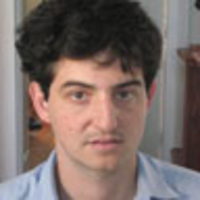
The Adventures of Huckleberry Finn may be the great American novel and Mark Twain the great American novelist but in his own lifetime—which ended exactly a hundred years ago today—Twain was read more widely as a travel writer. The book that brought him fame was Innocents Abroad, an account of his tour of Europe and the Holy Land aboard the side-wheel steamship Quaker City. It sold 70,000 copies in the year of its publication (1869), a success that none of his other books matched while he was alive. He returned to the genre with A Tramp Abroad (1880), written during a break from Huckleberry Finn, and later in Following the Equator (1897). (He wrote this last book under duress; he was forced to declare bankruptcy after investing more than $150,000—$3.8 million in today’s dollars—in an automatic typesetting machine that malfunctioned too frequently to compete with the Linotype. The royalties from Following the Equator allowed him to pay off his debts.) The Library of America has just published these two later moneymakers, together with 13 additional travel essays, in one of their characteristically handsome, dense volumes.
Only financial journalism and farmers’ almanacs date more quickly than travel writing, so an 1,145-page collection—even if the author is Samuel Clemens—would on the face of it seem better suited to a living room bookshelf than to the (strong, sturdy) hands of a contemporary reader. But Twain is the Peter Pan of American literature, the rascally lost boy who never gets old. You can open this volume to any page and find sentences that surprise, cause laughter, exhilarate, and often do all three at once. As Twain says of an anthology of Rhine legends he discovers in Hamburg, “this little book fed me in a very hungry place.”
Twain is at his funniest when attacking fogginess in sentiment, thought, and morality. For Twain, clarity of thought is morality.
The open-up-to-any-chapter method might, in fact, be the best approach here. These essays make for poor travel guides. No traveler, whether today or in Twain’s time, would gain any practical benefit from hauling these volumes on trips to Zermatt, Benares, Honolulu, or any of the other places he mentions. Twain has little patience for the standard requirements of travel literature. He dispatches with Baden-Baden, for instance, in a single sentence: “It is an inane town, filled with sham, and petty fraud, and snobbery, but the baths are good.” On the Royal Hotel in Durban, South Africa: “Comfortable, good table, good service of natives and Madrasis. Curious jumble of modern and ancient city and village, primitiveness and the other thing. Electric bells, but they don’t ring.”

Nor do the narratives require linear reading. Each chapter stands independently, linked to the preceding one with such minimal strands as “We left Adelaide in due course, and went to Horsham…” “We left Bombay for Allahabad by a night train…” “On the rail again—bound for Bendigo…” At moments, however, the beauty of a place nearly causes him to violate his own writing code: “use plain, simple language, short words and brief sentences…don’t let fluff and flowers and verbosity creep in.” Paragraphs devoted to “leafy ambuscades” and “brawling cataracts” do creep in, but he usually recovers his senses rather quickly.
That’s because Twain is after a larger and more diverse project. These books are much closer to anthologies than travel companions. They are short-story collections primarily, but there is also political satire, character study, comedy sketches, outtakes from novels, outlines for novels, fairy tales, parodies of various literary forms, cartoons and other drawings, sheet music, translations of romantic poetry, and critical essays on painting, opera, literature, and religion. There is even a 1,500-word diatribe on the subject of the ant, which is certainly the best, and most hostile example of formic writing in the English language:
I am persuaded that the average ant is a sham. I admit his industry, of course; he is the hardest working creature in the world,—when anybody is looking,—but his leatherheadedness is the point I make against him. He goes out foraging, he makes a capture, and then what does he do? Go home? No,—he goes anywhere but home. He doesn’t know where home is. His home may be only three feet away,—no matter, he can’t find it.
The ant should be grateful to be let off so easy; Twain gives the Europeans a harder time. After his luggage is nearly lost in Hamburg, he writes:
The Germans are very conscientious, and this trait makes them very particular. Therefore if you tell a German you want a thing done immediately, he takes you at your word; he thinks you mean what you say; so he does that thing immediately—according to his idea of immediately—which is about a week.
On the cowardly French: “Much as the modern French duel is ridiculed by certain smart people, it is in reality one of the most dangerous institutions of our day. Since it is always fought in the open air the combatants are nearly sure to catch cold.”
But the Americans he encounters abroad—the innocents—receive the worst abuse. Twain meets the 23-year-old heir to a notable family who is constantly “smiling a smirky smile” and “had all the look of an American person who would be likely to begin his signature with an initial, and spell his middle name out.” The boy grandly compliments Twain on all his “little efforts”—meaning his books. A second young man hops between European hotels in desperate search of other Americans. “I had the murderous impulse to harpoon him in the back with my alpenstock,” writes Twain, “but as I raised the weapon the disposition left me; I found I hadn’t the heart to kill him, he was such a joyous, innocent, good-natured numbskull.”
Twain is at his funniest when attacking fogginess in sentiment, thought, and morality. For Twain, clarity of thought is morality. “The Awful German Language,” included as an appendix in A Tramp Abroad, is one of the most enjoyable demonstrations of this in all of Twain’s canon. The essay begins with a catalog of German’s various offenses: superfluous words, parenthetical clauses, nouns that are compounds of other nouns and so cannot be located in any dictionary (“generalstaatsverordnetenversammlungen,” for instance), and excessively long sentences in which the verb does not appear until the final word—if then. Yet it soon becomes clear that Twain’s real target is not German itself but what he calls the “luminous intellectual fog which stands for clearness.” “Intellectual food,” he concludes, “is like any other; it is pleasanter and more beneficial to take it with a spoon than with a shovel.” This may be true, but with Twain the food is so light that you can shovel and shovel, even for 1,145 pages, and never feel full.
Plus: Check out Book Beast, for more news on hot titles and authors and excerpts from the latest books.
Nathaniel Rich is fiction editor at The Paris Review and the author ofThe Mayor’s Tongue.






